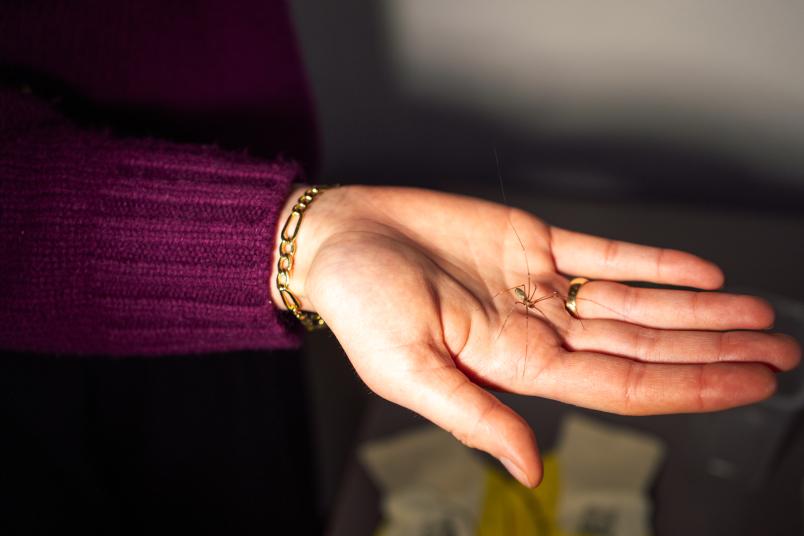Psychology
Therapy against spider fear can also reduce fear of heights
It has long been assumed that it is necessary to use different exposure therapies to treat different fears. A new study from Bochum challenges this view.
Exposure therapy for a specific fear can also help reduce other fears. This is the conclusion reached by psychologists at Ruhr University Bochum, Germany, who studied 50 people with a fear of spiders and heights. Although they only treated the fear of spiders, the fear of heights was likewise reduced in the process. Findings are described by a team around Iris Kodzaga and Professor Armin Zlomuzica from the Department of Behavioral and Clinical Neuroscience at Ruhr University Bochum in the journal Translational Psychiatry. The article was published online on December 19, 2023.
A number of anxiety disorders are co-morbid
“Anxiety rarely comes alone,” says Iris Kodzaga, lead author of the study. “Patients who suffer from one fear often subsequently develop another.” The most effective treatment method is exposure: By confronting the fear-inducing situations or stimuli under psychotherapeutic supervision, patients learn to overcome their fear.
“It was long assumed that if a person had multiple fears, they would require multiple exposure therapies tailored to their specific fear,” explains Kodzaga. The Bochum-based team is now challenging this assumption. The researchers measured fear of spiders and heights in 50 test subjects before and after exposure therapy targeting spider fear. Measures included subjective data from specific questionnaires for fear of spiders and heights. In addition, the researchers collected quantitative behavioral measures, such as how close the participants dared to approach the spiders or how far they could climb a high church tower.
Therapy methods could become more universal
Exposure therapy for spider fear not only reduced the fear of spiders, but also the fear of heights. A significant effect emerged in both the subjective and behavioral measures: Fear of heights decreased by an average of 15 percent as a result of exposure to spiders.
“The discovery that exposure to spiders also reduces fear of heights opens up new perspectives for the efficient treatment of phobias,” says Iris Kodzaga. “It could mean that we can rethink therapeutic approaches and possibly develop more universal methods.”
How exactly this effect is transferred from one fear to another is still unclear. “The effect can’t be fully explained by associative learning processes. The generalization effect might be due to an increase in self-efficacy as a result of exposure therapy,” says the researcher. “But perhaps there is also a common denominator between fear of spiders and fear of heights that’s not obvious. We’ll need to conduct follow-up studies to find out more.”


